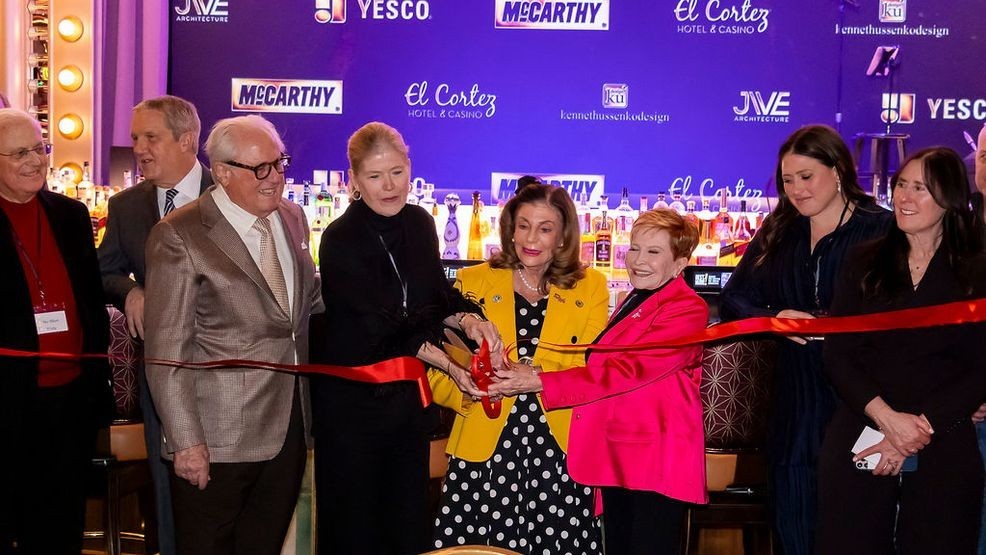A bill designed to lay the foundation for a casino in Fairfax County was sidelined by a Virginia House subcommittee on Feb. 12. This comes just one week after the bill passed a vote in the Virginia State Senate. The bill’s future for the 2025 session now appears uncertain.
Last week, the House Commerce, Agriculture, and Natural Resources Subcommittee voted to pass the bill by for the day — a procedural action used when a panel is not prepared to decide on a bill but typically signals that it will not advance out of committee.
Opponents of the casino celebrated the action as a death blow to the casino bill because the subcommittee is not scheduled to meet again before the General Assembly session concludes on Feb. 22, but supporters argued that it wasn’t the end of the matter.
“Okay, we’ll keep talking about it. Thank you,” Senate Majority Leader Scott Surovell, who patroned the bill, said to the panel immediately after the vote.
According to reporting by the Washington Post, Surovell said in a text message that the bill was not dead yet — “like Monty Python,” referring to a scene in “Monty Python and the Holy Grail.”
The plan, which was being pushed by real estate development company Comstock Holding Companies, would put the casino at the heart of a large entertainment district featuring a concert venue, convention center, hotels, dining, and a mix of luxury and workforce housing.
However, the action taken on the casino bill effectively halts the campaign by Christopher Clemente, a local developer and chief executive at Comstock Holding Companies, to locate a gaming casino on properties in Tysons during the 2025 Virginia Legislative Session.
Reacting to this action, Lynne Mulston, spokesperson for the No Fairfax Casino Coalition, released a statement.
“This bill was not requested by the local government, unlike the five other casinos that were authorized. This bill is the product of a local developer who stands to benefit from the carefully crafted language of the bill that targets his holdings and possibly one other nearby site,” Mulston said. “The idea of a casino has been rejected by thousands of residents of the county who believe that a casino does not comport with the long-term plans for Tysons.”
Mulston also offered her appreciation to the elected officials who spoke in opposition to the casino bill.
“We extend our deepest gratitude to Senator Jennifer Boysko, whose bold, decisive leadership led the opposition to this casino bill,” Mulston said. “We acknowledge the thousands of Fairfax County residents who signed petitions opposing the bill, wrote members of the General Assembly, donated to the fight, planted yard signs, attended our rallies and traveled numerous times to Richmond in order to voice opposition.”
Boysko (D-Reston) also shared a message following this action by the subcommittee.
“Oh what a happy day leading up to Valentine’s,” Boysko wrote on X, formerly known as Twitter. “SB 982, the ‘Casino Bill’ has died in a House Appropriations Subcommittee.”
Even if the bill doesn’t pass this session, there’s a chance it could reemerge next year. The division the bill has caused within the Senate Democratic Caucus also isn’t disappearing quickly. A day after Boysko spoke out against the casino bill in a House committee, fellow Democratic lawmakers removed her from the Virginia Senate Rules Committee. They also demoted her from her position as chair of the Transportation Committee.
Twenty-six of the Senate’s 40 members — all 21 Democrats and five Republicans — voted to remove Boysko as chair of the Transportation Committee, expel her from the Rules Committee, and reassign her to the Senate’s lowest-ranking panel, the Local Government Committee. Fourteen Republicans chose to leave the floor instead of participating in the vote. Boysko also voted for her own removal.
Boysko, Surovell, and other Senate Democrats refused to comment on her committee demotions, which many saw as punishment for testifying against Surrovell’s bill in the subcommittee. Normally, legislators only speak up when a bill is being discussed in a committee or on the floor. Boysko, however, joined members of the public on Wednesday to oppose the bill, saying she felt it was necessary because her constituents were strongly against it.





